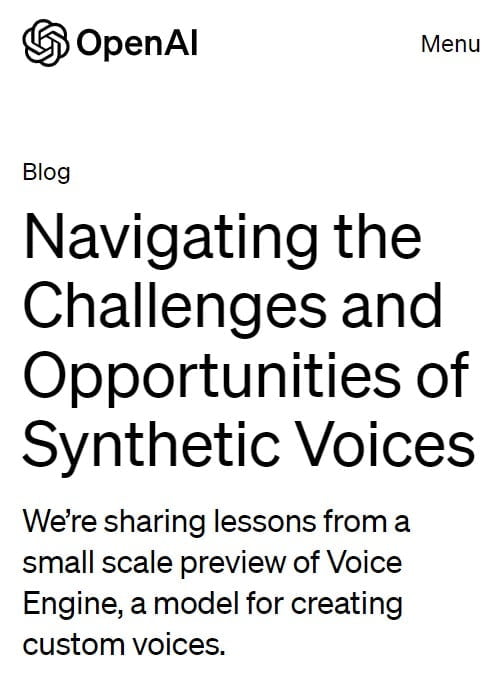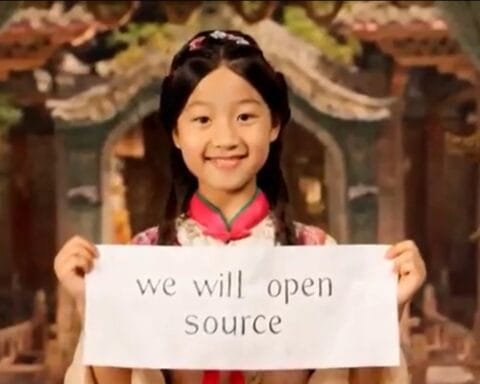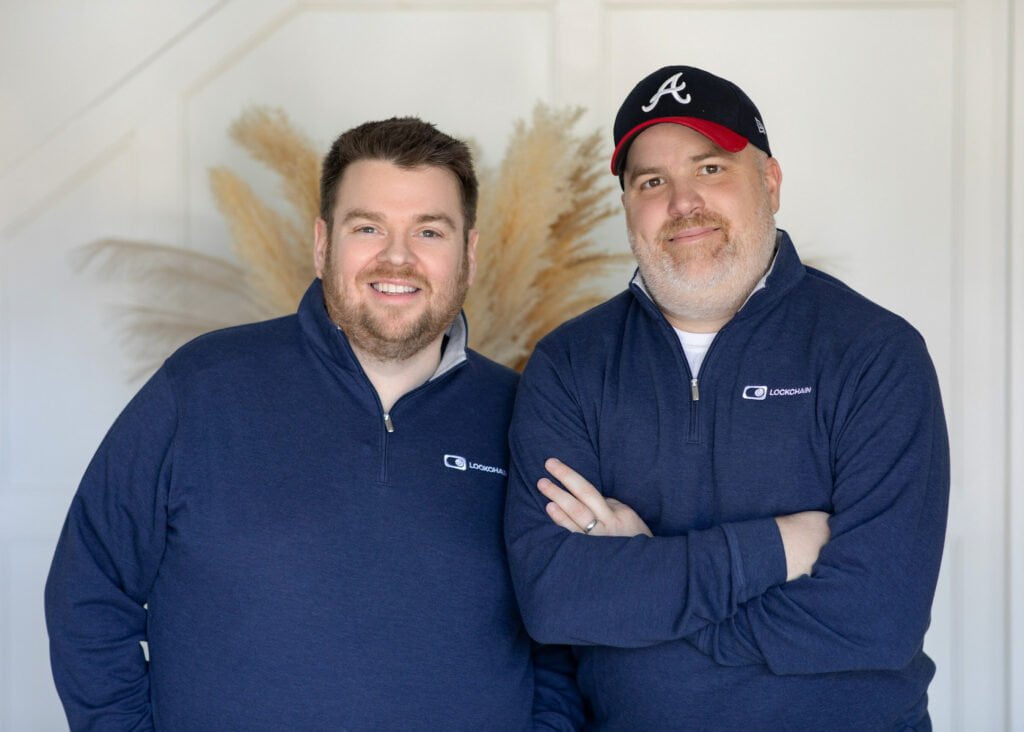Last Updated on April 2, 2024 12:28 pm by Laszlo Szabo / NowadAIs | Published on April 2, 2024 by Juhasz “the Mage” Gabor
Cloning Your Voice Has Never Been Easier: World of Voice Engine by OpenAI! – Key Notes
- OpenAI has developed Voice Engine, a tool capable of cloning voices from a 15-second audio sample.
- Aimed at enhancing various applications like education, content translation, healthcare, and more.
- Early use cases highlight Voice Engine’s versatility in providing personalized learning, global content translation, supporting non-verbal communication, and restoring patients’ voices.
- OpenAI emphasizes responsible deployment, requiring explicit consent for voice cloning and implementing safety measures like watermarking and a no-go voice list.
- OpenAI recommends phasing out voice-based authentication and calls for public education on AI’s capabilities to mitigate potential misuse.
Introduction
OpenAI, a leading AI lab, has recently unveiled a cutting-edge voice-cloning tool called Voice Engine. This technology has the ability to generate a highly convincing clone of someone’s voice using just a 15-second audio sample. While Voice Engine holds immense potential, OpenAI has decided to exercise caution and delay its public release due to concerns about potential misuse, particularly in the context of global elections.Now we will explore the features, applications, and responsible deployment of OpenAI’s Voice Engine, as well as the company’s commitment to addressing the associated risks.
Understanding OpenAI’s Voice Engine
Voice Engine, developed by OpenAI in late 2022, is a powerful tool that utilizes a 15-second audio sample to replicate a person’s voice. The technology has been used to power the preset voices available in OpenAI’s text-to-speech API, as well as ChatGPT Voice and Read Aloud.
Early Applications of Voice Engine
During the testing phase, OpenAI collaborated with a select group of trusted partners who explored various applications of Voice Engine. These early adopters have showcased the versatility and potential of the technology across different industries.
Some notable use cases include:
Providing Reading Assistance and Personalized Responses in Education
OpenAI’s Voice Engine has been employed by Age of Learning, an education technology company, to provide reading assistance to non-readers and children. By generating natural-sounding, emotive voices representing a wider range of speakers, Voice Engine enables Age of Learning to create pre-scripted voice-over content and real-time, personalized responses to interact with students. This technology has allowed Age of Learning to expand its content and cater to a broader audience.
Translating Content and Reaching Global Audiences
OpenAI’s Voice Engine has been instrumental in translating content, such as videos and podcasts, allowing creators and businesses to reach a global audience fluently and in their own voices. HeyGen, an AI visual storytelling platform, works with enterprise customers to create custom, human-like avatars for various content purposes. By leveraging Voice Engine, HeyGen can translate a speaker’s voice into multiple languages while preserving the native accent of the original speaker. This capability opens up new avenues for global communication and cultural exchange.
Enhancing Essential Service Delivery in Remote Settings
Dimagi, a technology company, has utilized Voice Engine to enhance essential service delivery in remote settings. Specifically, they have developed tools for community health workers to provide counseling for breastfeeding mothers. By incorporating Voice Engine and GPT-4, Dimagi can offer interactive feedback to these workers in their primary language, including more informal languages like Sheng. This technology helps bridge communication gaps and ensures effective service delivery, even in remote areas.
Supporting People Who Are Non-Verbal
Livox, an AI alternative communication app, leverages OpenAI’s Voice Engine to empower individuals with conditions that affect speech. Livox’s Augmentative & Alternative Communication (AAC) devices enable people with disabilities to communicate effectively. By using Voice Engine, Livox offers non-verbal individuals unique and non-robotic voices across multiple languages. Users can choose a voice that best represents them, ensuring a personalized and inclusive communication experience.
Helping Patients Recover Their Voice in Clinical Settings
The Norman Prince Neurosciences Institute at Lifespan, a not-for-profit health system, has piloted the use of Voice Engine to restore the voices of patients facing sudden or degenerative speech conditions. In one remarkable case, doctors were able to restore the voice of a young patient who had lost her fluent speech due to a vascular brain tumor. By utilizing audio from a video recorded for a school project, Voice Engine provided a lifeline for the patient’s communication abilities.
Responsible Deployment and Safety Measures
OpenAI is committed to ensuring the responsible deployment of Voice Engine and mitigating potential risks associated with voice cloning technology. The company recognizes the serious risks of generating speech that resembles people’s voices, particularly in an election year. To address these concerns, OpenAI has taken several measures:
- Engaging with Partners and Incorporating Feedback: OpenAI collaborates with U.S. and international partners from various sectors, including government, media, entertainment, education, and civil society. By incorporating their feedback, OpenAI aims to make more informed decisions about the deployment of Voice Engine.
- Consent and Usage Policies: OpenAI requires explicit and informed consent from the original speaker for the use of Voice Engine. The company’s usage policies prohibit the impersonation of individuals or organizations without consent or legal right.
- Watermarking and Traceability: OpenAI has implemented watermarking to trace the origin of any audio generated by Voice Engine. This measure ensures accountability and helps prevent misuse of the technology.
- Proactive Monitoring: OpenAI actively monitors how Voice Engine is being used, further enhancing safety measures and addressing potential misuse.
- Voice Authentication and No-Go Voice List: OpenAI believes that any widespread deployment of synthetic voice technology should be accompanied by voice authentication experiences. This verification process ensures that the original speaker knowingly adds their voice to the service. Additionally, OpenAI advocates for the creation of a no-go voice list to prevent the creation of voices that closely resemble prominent figures.
Building Societal Resilience and Ethical Considerations
OpenAI acknowledges the need to build societal resilience against the challenges posed by increasingly convincing generative models such as Voice Engine. The company encourages various steps to address these challenges:
- Phasing out Voice-Based Authentication: OpenAI suggests phasing out voice-based authentication as a security measure for accessing sensitive information, such as bank accounts. This recommendation aims to reduce the potential risks associated with voice cloning technology.
- Protecting Individuals’ Voices in AI: OpenAI calls for the exploration of policies that protect the use of individuals’ voices in AI. This includes safeguarding against unauthorized use and ensuring individuals have control over how their voices are utilized.
- Educating the Public: OpenAI emphasizes the importance of educating the public about the capabilities and limitations of AI technologies, including the possibility of deceptive AI content. By increasing awareness, individuals can make informed decisions and navigate the digital landscape more effectively.
- Tracking the Origin of Audiovisual Content: OpenAI encourages the development and adoption of techniques for tracking the origin of audiovisual content. This transparency ensures that individuals can differentiate between real human interactions and AI-generated content.
Conclusion
OpenAI’s Voice Engine represents a major breakthrough in voice-cloning technology. While the potential applications of Voice Engine are vast, OpenAI has taken a cautious approach to its deployment, considering the associated risks and concerns, particularly in the context of US elections.
By engaging with partners, implementing safety measures, and advocating for responsible deployment, OpenAI aims to navigate the challenges and opportunities presented by Voice Engine.
As society adapts to these new capabilities, it is crucial to prioritize ethical considerations, educate the public, and build resilience against potential misuse. With further testing and public dialogue, OpenAI will make informed decisions about the future of Voice Engine and its responsible integration into various industries and domains.
Definitions
- Voice Engine: An advanced voice-cloning tool developed by OpenAI that can replicate a person’s voice using just a 15-second audio sample, integrating emotional intelligence for more natural interactions.
- OpenAI: A leading artificial intelligence research lab known for creating cutting-edge AI technologies aimed at promoting and developing friendly AI for the benefit of humanity.
- US elections: A democratic process in which citizens of the United States elect public officials. Voice cloning technologies like Voice Engine have raised concerns over potential misuse during elections.
- Degenerative speech conditions: Medical conditions that progressively impair a person’s ability to speak. Voice Engine offers potential solutions by restoring the voices of affected individuals.
- Watermark audio: A technique used by Voice Engine to embed an invisible marker in audio outputs, ensuring traceability and authenticity of AI-generated voice content.
- No-go voice list: A policy proposed by OpenAI for Voice Engine to prevent cloning voices of certain individuals without consent, aimed at protecting privacy and preventing misuse.
Frequently Asked Questions
- What sets OpenAI’s Voice Engine apart from other voice-cloning technologies?
- Voice Engine distinguishes itself by requiring only a 15-second audio sample for cloning, emphasizing user consent, and embedding watermarks for traceability. Its applications span across education, healthcare, and media, showcasing versatility and commitment to ethical use.
- How does Voice Engine contribute to educational technology?
- Through collaborations like with Age of Learning, Voice Engine enhances reading assistance by providing natural-sounding voices for diverse characters, enabling personalized responses that cater to the educational needs of children and non-readers.
- Can Voice Engine translate content while maintaining the speaker’s original voice and accent?
- Yes, Voice Engine has been utilized to fluently translate content into multiple languages, preserving the speaker’s native accent. This opens new possibilities for global communication and content sharing across different cultures.
- What measures has OpenAI taken to ensure the responsible use of Voice Engine?
- OpenAI requires explicit consent for voice cloning, has established a no-go voice list, and utilizes watermarking for audio traceability. These steps, alongside continuous monitoring and partner engagement, underline OpenAI’s commitment to ethical deployment.
- What are OpenAI’s recommendations for society in response to advanced voice-cloning tools like Voice Engine?
- OpenAI suggests phasing out voice-based authentication, educating the public on AI’s capabilities, exploring policies to protect voice use in AI, and developing techniques to track audiovisual content’s origin to build societal resilience against misuse.









